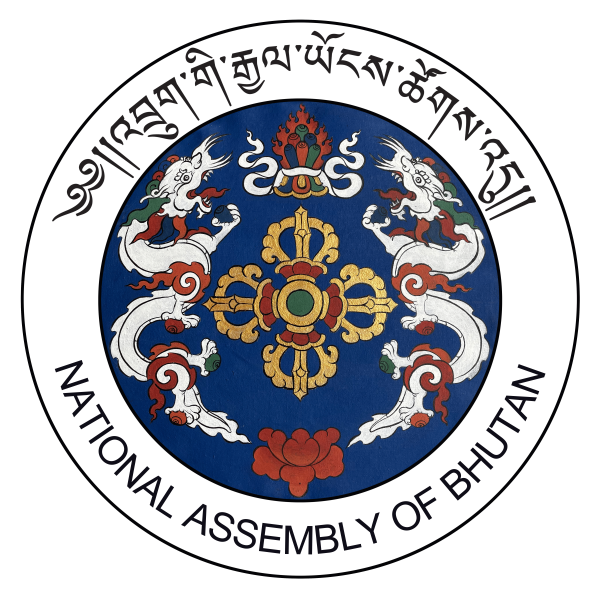
Committee Report
The Economic and Finance Committee presents its Report on the Implementation of Economic Stimulus Program (ESP)
The Member from Monggar constituency who is also the member of the Economic and Finance Committee, presented the Committee’s Report on the Implementation of the Economic Stimulus Program (ESP) to the National Assembly and made the following 7 recommendations to the House.
The Committee made the following 7 recommendations to the House :
Reallocation of Funds to Concessional Loans- Given the Nu. 8.2 billion gap between demand and current allocation, and underutilization of existing funds, it is strongly recommended to reallocate more funds to concessional loans. This will enhance efficiency and potentially support a larger number of beneficiaries, aiding economic revival.
Relaxation of NPL and CIB Criteria for Distressed Businesses- Due to the mismatch between the ESP’s goals and on-ground implementation, especially regarding access for entities with NPL and poor CIB records, it is recommended to relax NPL and CIB criteria and remove the cooling period. This ensures fair access to financing for COVID-impacted sectors like trade, tourism, and manufacturing.
Strengthen Monitoring and Auditing of Loan Programs-To mitigate risks of misuse amidst competing loan demands and limited funds, it is recommended that PFIs, technical agencies, and the Royal Audit Authority conduct periodic monitoring and auditing to ensure proper fund utilization.
Strategize Sustainable Solutions for NPL- With NPLs standing at Nu. 7.58 billion and posing economic threats, the government is urged to collaborate with RMA and PFIs to develop long-term strategies to address NPL, instead of relying solely on deferment schemes.
Harmonize SOPs and Decentralize Approval Process- To improve fund disbursement efficiency, it is recommended to harmonize PFI regulations and SOPs, and decentralize loan approval authority to branch managers. If decentralization is not feasible, recruitment of additional staff should be explored.
Expand ESP Price Guarantee Scheme- In view of the positive impact on farm productivity, the committee recommends allocating additional budget to expand the ESP Price Guarantee Scheme and to formulate a long-term sustainability plan beyond the lifespan of the economic stimulus program.
Provide Grace Period for EMI Repayment- To enhance project viability, particularly those with longer gestation periods, it is proposed to allow a minimum 6-month grace period post-establishment before EMI collection begins. For longer-term projects like piggery, repayment schedules should align with income realization, and loan tenure adjusted accordingly.
While the House endorsed all the seven recommendations with regard to the second and fourth recommendations, the House directed that the Government, the Finance Minister, the Royal Monetary Authority (RMA), and relevant agencies work together to look into measures to resolve the issues concerning Non-Performing Loans (NPL) and Credit Information Bureau (CIB) criteria and report to the House.
The House also endorsed Recommendation 7 with some changes stating that the loan repayment schedule should be aligned with the actual duration and gestation period of the project, rather than a fixed uniform timeframe.
The report is based on the study conducted on the implementation of the Nu. 15 billion ESP, which was launched by the Royal Government of Bhutan on May 19, 2024, to support post-COVID-19 economic recovery through concessional loans, business reinvigoration, and targeted agency-led initiatives. The committee visited all 20 Dzongkhags, conducted stakeholder consultations and public hearings.
Please click here to view the full report of the committee: https://parliament.bt/uploads/topics/17489475794125.pdf
The Economic and Finance Committee presents its Review Report on the cost-sharing Mechanism for the RNR Sectors
Member of the Economic and Finance Committee (EFC), Member from the Bji-Kartshog-Uesu presented its review report on the Cost-Sharing Mechanism (CSM) for the Renewable Natural Resources (RNR) sector, calling for urgent action to finalize and implement the revised model before the current scheme expires in June 2025.
The review follows a directive from the Plenary Session on February 7, 2025, to assess the appropriateness of the 60:40 cost-sharing ratio between the government and beneficiaries. Consultations with the Ministry of Finance (MoF) and Ministry of Agriculture and Livestock (MoAL) led to the formation of a joint technical task force, which has already drafted and submitted a revised proposal.
Based on the review the Committee made the following three recommendations: :
Ministry of Finance to expedite its review process.
The Joint Technical Task Force to conclude its deliberations swiftly
Submission of the final report to the Committee at the earliest possible date.
The EFC emphasized that timely implementation is crucial to avoid service gaps and to ensure continued support for farmers under a more strategic and results-driven cost-sharing framework.
The House endorsed the recommendations and directed both the concerned Ministries and the Committee to carry out the necessary consultations and review at the earliest and submit a report in the current session.
Please click here to view the full report of the committee: https://parliament.bt/uploads/topics/17489474479218.pdf
Comment
You May Also Like
Vote / Poll
How should the government react to Bhutanese leaving to Australa ?





